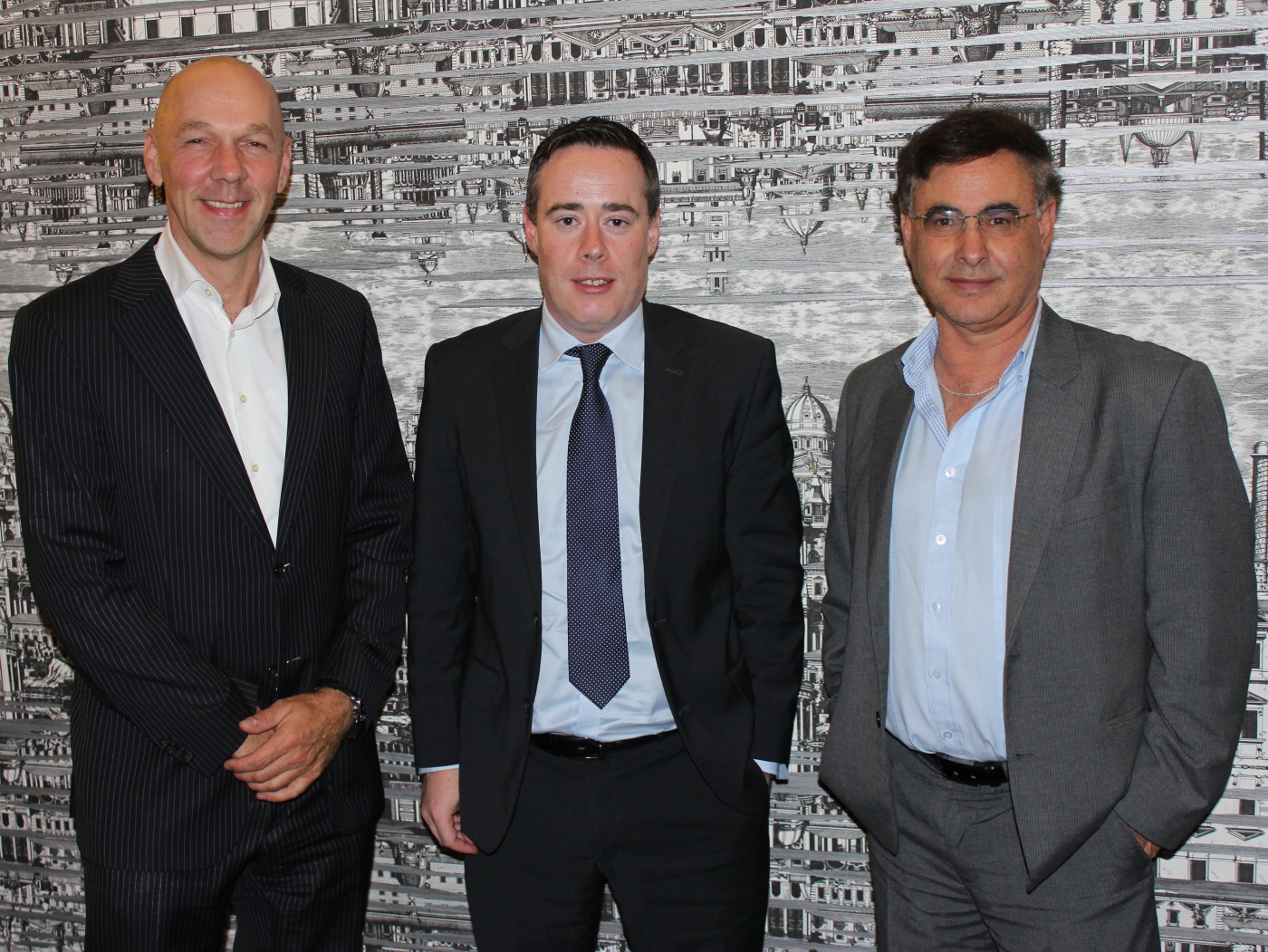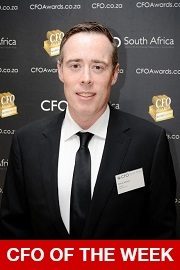Kevin Johnson has rolled out ERP projects globally and previously held management positions in Australia and the UK within the Howden Group (Part of NYSE listed Colfax). In South Africa he recently had the opportunity to relocate, but decided to extend his stay because “my family likes the country and I felt my job wasn’t finished”. The job over the last few years has been exciting, it has entailed a lot of restructuring and modernization, particularly in the IT space. Because of the lack of growth in the mining sector Johnson – from Northern Ireland – has been part of the team that changed the strategy to focus on the aftermarket, something the CEO and he had done before in Asia Pacific. “Even though our revenue dipped in mining, our profit in this sector went up.”
- Join the CFO South Africa 'Finance Transformation' event on 22 October
- CFO South Africa is introducing a who-is-who section for CFOs in the country. Howden's Kevin Johnson is already there
What do you enjoy most about your job?
"I am not a traditional number cruncher, but I gravitate towards general management. This CFO role suits me, because it is more about reviewing policy and about strategy. When I look back, I feel I have accomplished something."
"I try and spend 25 percent of my time on talent management. When I recruit my philosophy is to look for people that are better than me. When I talk to the Financial Manager or the Tax Accountant, I know they are better in their area of responsibility than I am. It often takes 6 months to recruit for a senior finance position. We have changed tack a bit recently and are now very focused on trying to build up talent from within. We are aggressively looking at filling at least 70 percent of all positions from within our existing talent pool at Howden Africa."
What is your recipe for success?
"So many CFOs try to do everything themselves. I try to make sure I recruit people that can jump up two levels quickly. They are very motivated and really want to work hard for you and be successful. My view is to try and get the company in a position that we are a new exporter of talent and become resilient enough that things continue at the same standard without any 1 individual."
 What does your partnership with the CEO look like?
What does your partnership with the CEO look like?
"We worked together in Australia, looking after Asia Pacific. We went through the Asian economic crisis together. We devised a 'aftermarket driven business model', focusing on maintenance of existing equipment. That was very successful and has been rolled out worldwide. We complement each other."
(In the photo: Alex van Groningen, founder CFO South Africa, Kevin Johnson and Asher Bohbot, CEO of EOH)
"The CEO and I have strategy discussions. We throw around ideas, brainstorming. After we agree some ideas, I assist in building an action plan, which is much more than a financial plan. It's about putting milestones in place to ensure that the strategy becomes reality."
Which major strategic decisions have you made lately?
"The economy has not been great particularly for new build mining. We implemented an aftermarket strategy in mining to respond to the slow down. Our philosophy has always been that small companies would do the maintenance after we had installed our equipment, but we had not properly listened to the customer's needs. We restructured and retrained, because aftermarket requires a different selling approach. Even though our revenue dipped, our profit went up because there is a higher margin on maintenance."
Eskom is Howden's biggest client. How does that influence your decisions?
"The power stations have Howden fans and Eskom is a key customer with whom we have an excellent relationship. We provide 24/7 operational support to Eskom and we are constantly working with them to identify operational improvements that can be made to our equipment to improve efficiencies at their power stations. Our engineering capability and our 24/7 service levels are our key offering to Eskom and our other clients. We employ a large workforce in South Africa and a large portion of these people work on Eskom sites. An important part of our make-up is that everything is made in South Africa which allows us to better meet Government objectives surrounding job creation and Enterprise development."
How agile is Howden?
"South Africa is not a big market and we have an enormous amount of products. We can shift our capacity between those very quickly, so we are very agile. Finance gives lead indicators to the business about the shifts that are required to be made."
How does Howden give back to society?
"There is a lack of new engineers coming through yearly in South Africa and we have identified this as a key issue for Howden and the country. We have flagship projects that we run at schools in terms of encouraging the kids to take up mathematics and then go on and pursue a career in Engineering. There is also a shortage of qualified welders and Howden runs its own academy on site where we offer extensive training including lots of practical experience working on our products."
What is your take on succession planning?
"We have a key talent pool in Howden Africa and those identified in this pool are giving extra attention as they have been identified as people who are core to the business and have the ability to be promoted."
How do your internal stakeholders describe your finance team?
"We implemented Sox 2 years ago. That was challenging and we had some issues. Finance took the burden. Now we are concentrating on reducing waste. I am proud that in my time with Howden Africa we successfully strengthen the accounting team and in particular our management accounting functions which was vital to improve controls and drive bottom line profitability."
Besides CFO, you are also CIO. Why this unusual double role?
"I had been Program director on a global ERP rollout program for Howden and with this experience it made sense for me to also take on the CIO when I arrived."
How do you measure your ROI on technology investments?
"That is the most difficult thing in IT. I can tell you we don't just let Capex expenses pass. We formulate KPIs of the benefits that we are expecting, some monetary, others not. After a year we report back on how we have performed against those. When you improve the data speed of a line it is easy to measure but with big technological investments like ERP it is not easy."
What have you implemented since you came to South Africa?
"I was shocked when I came here. They had a 1990s ERP system. Now we have Microsoft Dynamics AX as our ERP, which has been highly customized to meet Howden businesses unique requirements. We also implemented Microsoft Lync for our phone systems over the internet. During a strike last year these implementation meant we could continue business remotely with communications remotely despite our Head office and manufacturing sites at Booysens and PE closing down. We have implemented a number of significant improvements in the IT space for example Workday, an HR system that enables talent management, Connect, a intranet service which has improved collaboration between employee throughout Howden."
- Stay connected, up to date and in the loop on what is happening in the world of finance and keep track of newly published expert insights and interviews with CFOs and CEOs. Become an online member and receive our newsletter, follow us on Twitter, like us on Facebook and join us on LinkedIn.











